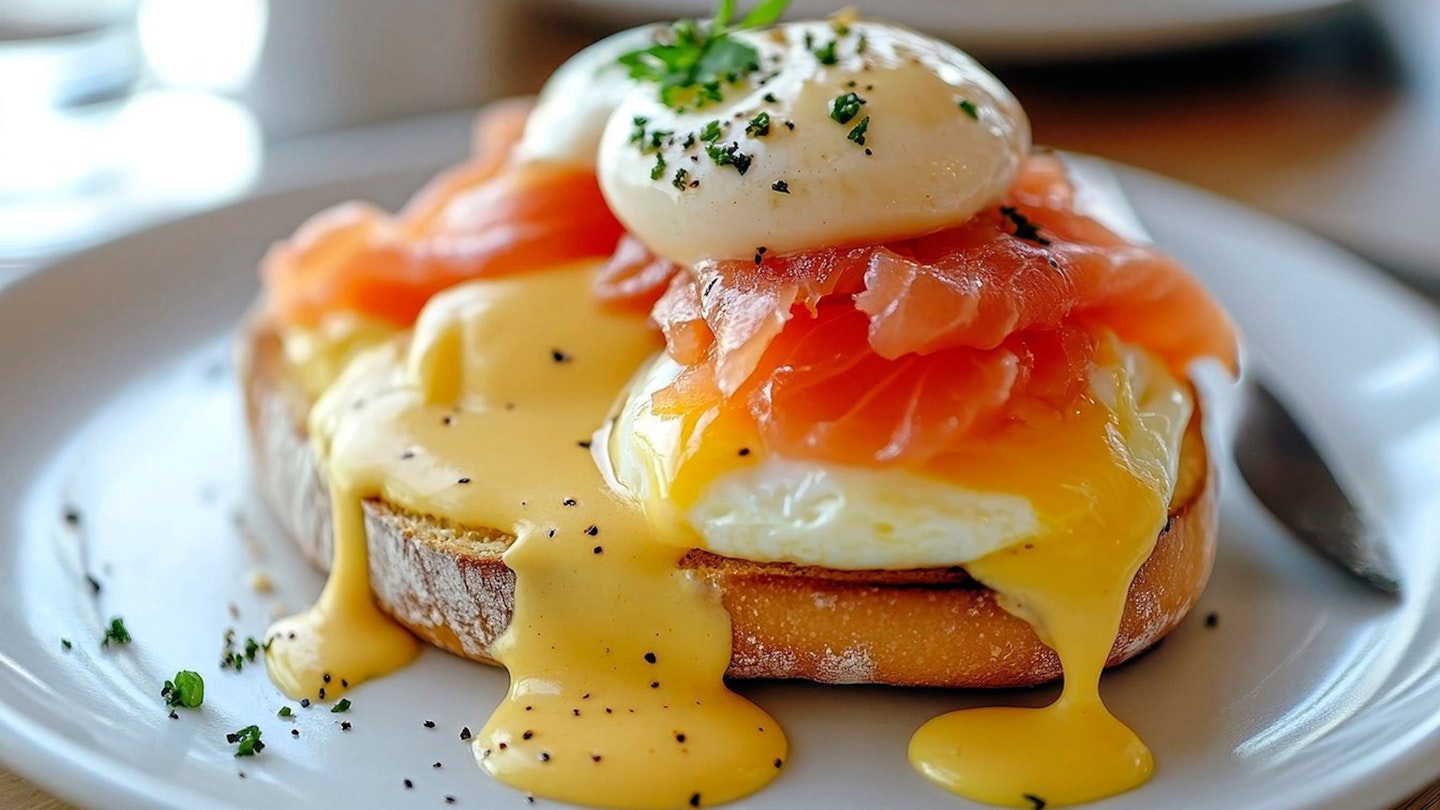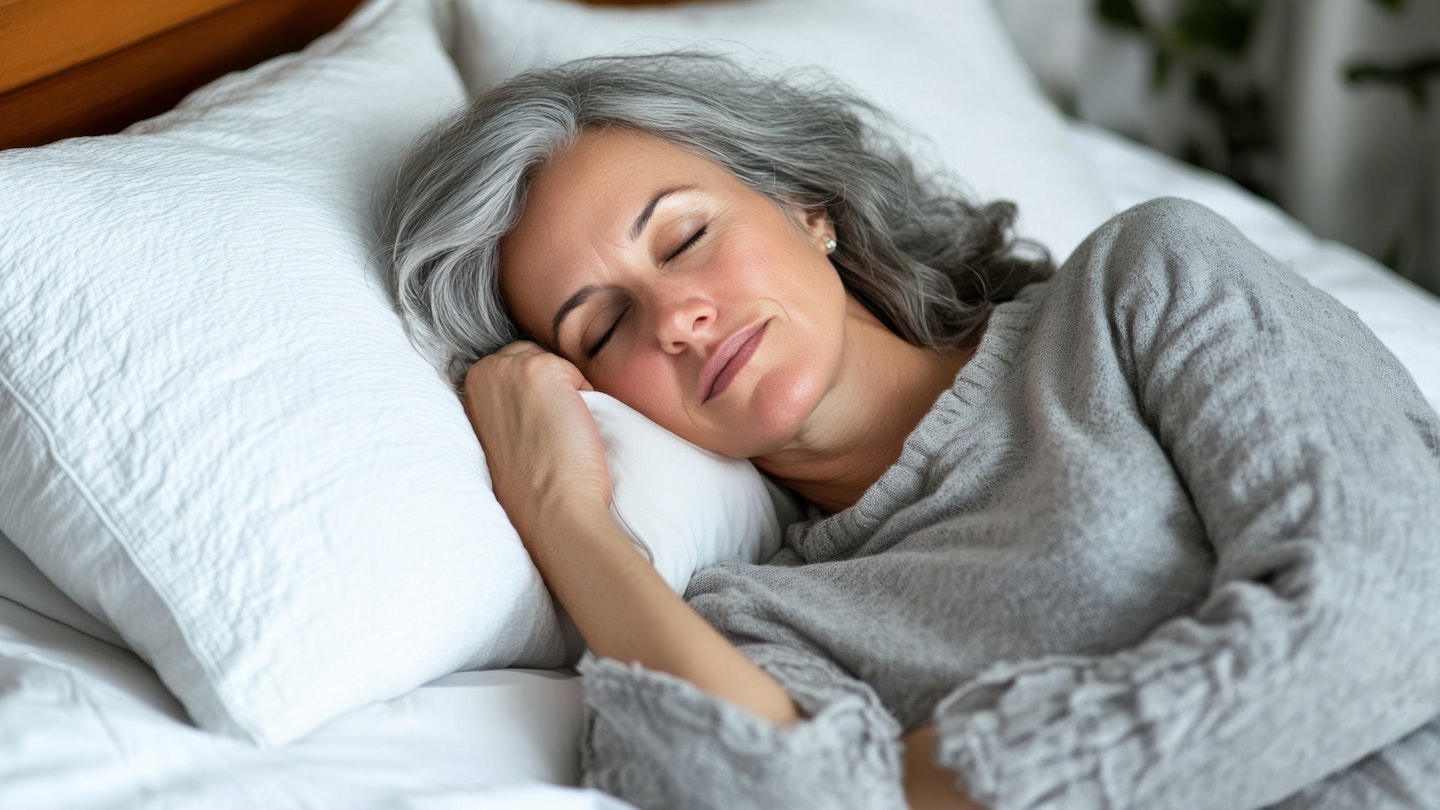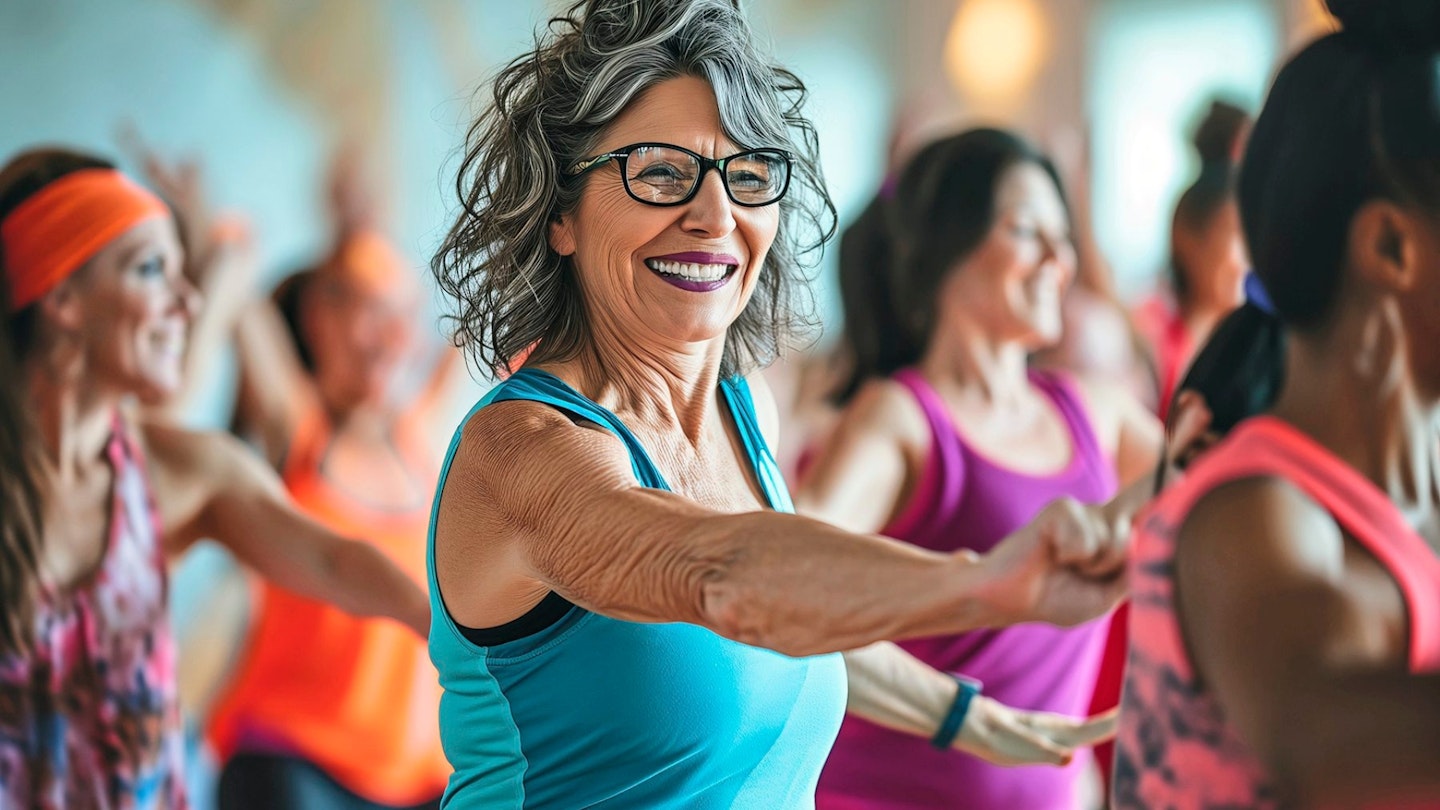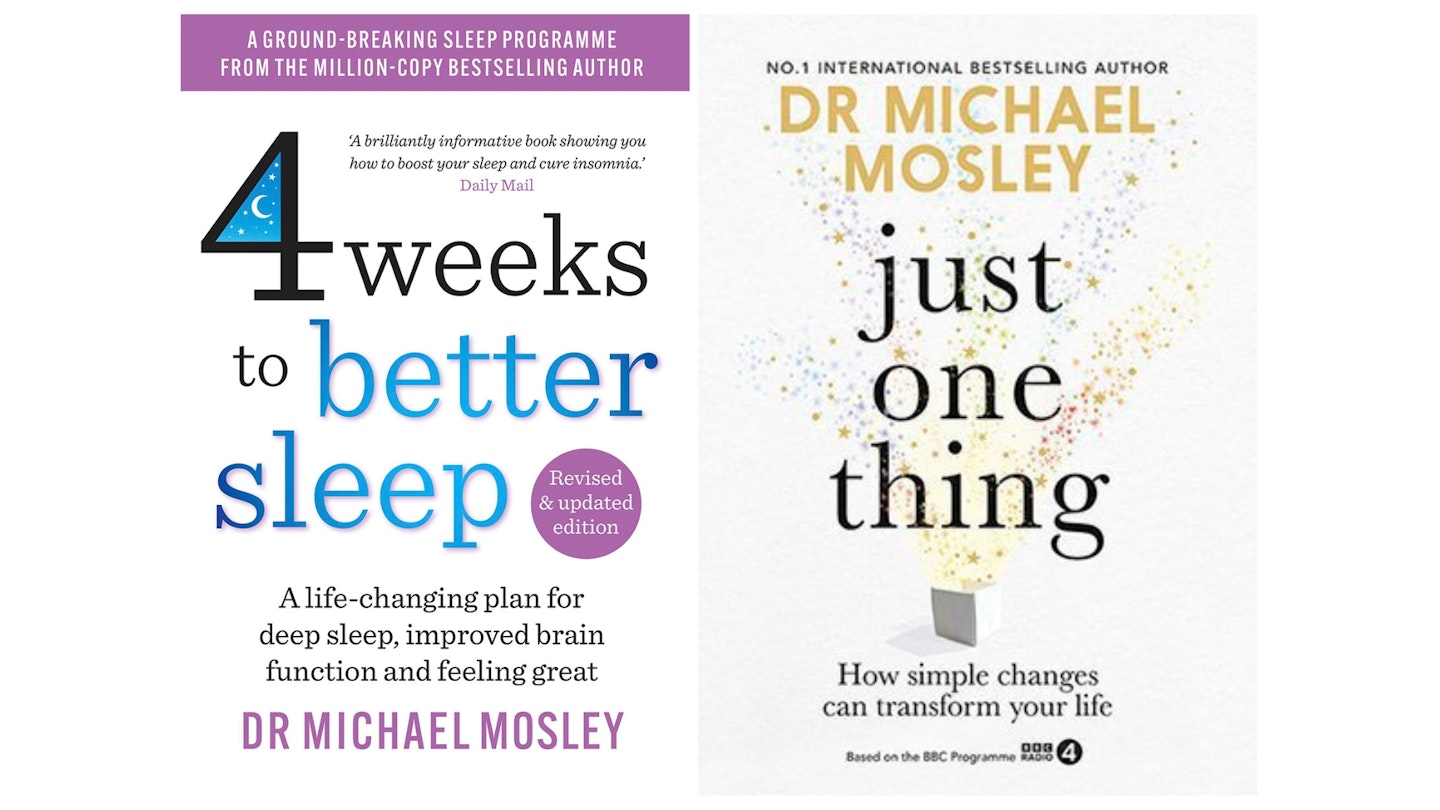Wellbeing guru Dr Michael Mosley said the most sustainable changes are the quick ones we can easily slot into our lives – and they come with big benefits.
When Dr Michael Mosley died last year, he left a legacy of health and wellbeing wisdom for us to live by. Here, we share some of his best advice and his easy-to-adopt tips and habits.
Eat an apple a day…
So, it seems there is truth in the saying, ‘An apple a day keeps the doctor away’. Dr Mosley said, ‘We know that the skin of apples is rich in fibre and flavonoids [a beneficial compound], and research has shown that apples feed the good bacteria in your gut and help stop sugary cravings.’ He also explained that flavonoids from fruit can increase the production of a molecule in our body called nitric oxide that regulates blood pressure and maintains blood vessel health.
‘Most of an apple’s flavonoids lurk in or just under the skin – so ideally you should eat your apples unpeeled to gain the maximum benefits.’
Soak up some sun
While we might not see much sun at this time of year, we should make the most of it when we do. Dr Mosley explained that we should give our skin a short blast of sunshine each day (during summer) to boost our vitamin D levels, lower blood pressure, lift our mood and keep our immune system strong.

‘Everyone should take a supplement of vitamin D between the months of September and March, but it’s great if we can absorb as much as possible through sunlight – being careful not to burn,’ he said. ‘You need to expose more of your body than just your face though, so roll up your sleeves and pull up your trousers to absorb as much as possible.’
Stand up regularly
This one is especially significant for those with more sedentary lifestyles – Dr Mosley said it is hugely important that we stand for periods throughout the day. ‘The average person sits on their bottom for nine-and-a-half hours a day and we aren’t designed to be that way – our ancestors would have been roaming around a lot more,’ he explained.
‘We know from many studies that sitting a lot is increasing our risk of heart attacks, strokes and other health issues, so it’s suggested we get up and move around for a few minutes every 30 minutes.’ Dr Mosley suggested finding ways to slot more standing into your life, including using a standing desk, standing on public transport or getting up every time you receive a phone call. ‘There is some research to suggest that if you take a phone call standing up it makes you sound more assertive,’ he added. ‘So, it’s a double win!’
Breathe deeply
‘Deep breathing is a perfect example of something that is simple, quick and completely life changing,’ explained Dr Mosley, who advised we use the 4-2-4 technique when feeling stressed. It's also a great technique to use when you can't sleep.
‘Slow breathing is a great way to give yourself a mild tranquiliser. You breathe in to a count of four, hold for two and breathe out to a count of four. Do it for a minute and it slows your heart down and makes you feel less stressed. I use it when I’m lying awake at 3am with lots of crazy thoughts going through my brain, and it’s invaluable. I focus on my breathing using 4-2-4 and within minutes, I’m usually asleep again.'
Take exercise ‘snacks’
‘The idea of exercise snacking is that you fit short periods of exercise into your day. We think we have to do 30 minutes in one go but we don’t,’ explained Dr Mosley, who suggested fitting short bursts of exertion into your day – things like a brisk 10-15 minute walk, running up and down the stairs a few times, doing 60 seconds of star jumps or dancing enthusiastically to a couple of songs. It can also boost your energy too.
‘When you sit there lethargically, your blood sugars can go up and your blood pressure might rise, so moving pumps more oxygen into your brain and stirs you up.’
Dr Mosley recommended some of your exercise snacks include resistance exercises, such as press‑ups and squats, to build muscle. He said, ‘I do them first thing in the morning, but it could be doing some squats while you wait for the kettle to boil, or someone I know does them after they go to the loo! It’s just finding a way to fit them in.’
Nourish your microbiome
If you haven’t heard of the microbiome, it’s a community of trillions of bacteria, viruses, fungi and other microbes living in your gut. They influence our digestion, sleep, immunity and even our mental health.
‘If you have a bad mix of microbes, you get inflammation in your gut,’ explained Dr Mosley. ‘That spreads to other parts of your body, including your brain, which is why they also have an impact on depression and anxiety. But you can change the microbiome pretty fast and when your gut bacteria get healthier, you feel better. Within three weeks, you can see significant changes. Olive oil, nuts, veg, oily fish and legumes such as kidney beans, butter beans and lentils are all good for gut health.’
Fast overnight
Research suggests that fasting overnight for 14 hours – known as Time Restricted Eating (TRE) – can help weight loss and reduce blood pressure, as well as improving sleep and blood-sugar levels. It’s thought that it may lower your risk of heart disease too.
‘TRE switches on “repair” mode,’ said Dr Mosley. ‘Your body clears out old cells, and they are then replaced by new cells when you pick up eating again.’
Jennifer Aniston swears by eating in an eight-hour window, saying she noticed a ‘big difference’ in going without solid food for 16 hours. However, Dr Mosley suggested trying a more manageable 14. ‘Try having your last meal of the day by 8pm, and not eating again until 10am,’ he said. ‘You can drink water, and when you wake up, black tea or coffee.’
Eat SMASH foods

We know oily fish is good for our heart and brain health, thanks to omega-3 fatty acids, but it can boost your mood too. ‘Our brains need omega-3 fatty acids,’ explained Dr Mosley. ‘Studies have even shown that giving prisoners supplements that include omega-3 led to less violence.’ Dr Mosley said we would benefit from including plenty of oily fish in our diets. ‘Think SMASH,’ he said. ‘Salmon, mackerel, anchovies, sardines and herring. I often have kippers [herring] for breakfast, or smoked salmon with eggs.’
SECRETS TO BETTER SLEEP
Don’t underestimate the importance of sticking to a sleep timetable – Dr Mosley’s ‘number one rule’ was that we get up and go to bed at a similar time each day. ‘Your brain loves regularity,’ he explained. ‘If you struggle to get up, keep your alarm on the other side of your room. It can be tough, but remind yourself that you’re going to improve your sleep and your mental health.’

Dr Mosley also urged us not to obsess over a bad night’s kip. ‘A few nights of bad sleep won’t have terrible effects. People lie awake worrying, “It’s 3am, I’m not asleep. Does this mean I’m going to have a heart attack tomorrow or develop cancer?” The answer is no. And if you overly obsess about a bad night’s sleep, you’re actually more likely to sleep badly.’
Finally, be careful with caffeine. The average half-life of caffeine is around five hours, which means that if you have a coffee at 6pm, half could still be running round your system at 11pm and a quarter may still be there at 4am. ‘Try giving it up, or not drinking it after 11am,’ he said.
FIND FUN IN EXERCISE

‘Most people won’t keep up exercise if they’re relentlessly plodding away on a treadmill, because it’s too grim,’ said Dr Mosley. ‘Bring pleasure into it instead. Try Zumba and ask a friend to join you. Walking is great too - just make it brisk, at more than 100 paces a minute. It helps to listen to music that has 100 beats a minute or more – The Black-Eyed Peas are great, or a song like I Will Survive by Gloria Gaynor. It’s all about getting your heart rate up.’
For more ideas, check out Dr Michael Mosley’s books Just One Thing – How Simple Changes Can Transform Your Life and 4 Weeks to Better Sleep

